How to Know if You Have a Virus on Your Android Phone
When you picture hackers you likely think of two things. Either large scale, enterprise attacks that cause millions in damage, or micro phishing attacks that prey on the most vulnerable internet users. Growing upward in the internet age, with the said-to-exist indestructible Apple products, it'due south hard to fathom a virus wreaking havoc on your phone and mining your data without the slightest suspicion.
Merely, as the digital age switched from desktops to mobile devices, so did hackers. Today, your prison cell phone may be but as vulnerable every bit your laptop. So how do you know if your phone has a virus? Lookout for telltale signs of suboptimal performance, and so troubleshoot effectively to remove the virus.
Tin Phones Get Viruses?
It's possible for phones to go a virus. As the popularity of smartphones exploded beyond that of computers as personal devices, so did hackers. Thus, mobile malware. While a traditional virus replicates itself while running, viruses on mobile devices target weak points within your operating system for data-mining, financial proceeds, or to corrupt a network.
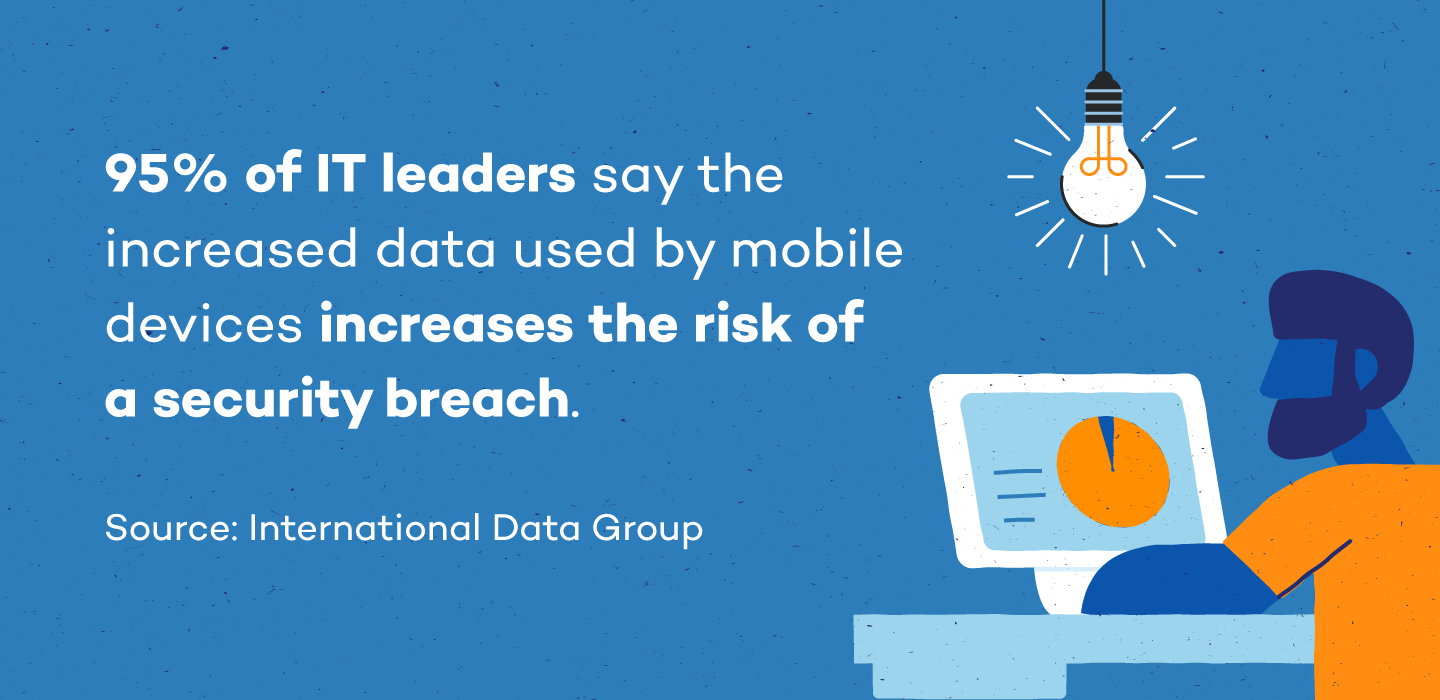
Data sharing capabilities are typically blocked between applications, merely some apps take been scrutinized for speculations of mishandling data, making its users increasingly vulnerable to these types of attacks.
eight Signs Your Phone Has a Virus
While some viruses will simply limit the function of your phone, some have more malicious intent to steal and remove information or brand unauthorized purchases. Yous often won't recognize a virus immediately since malware tin can run dormant while using your phone as usual.
Some suboptimal performance problems are a normal symptom of wear on a phone. All the same, these symptoms tin also be a sign of malicious malware at work. If you lot accept functioning issues on your phone, troubleshoot by attempting to remove the virus.
These 8 signs are an indication that your phone may accept a virus:
- Excessive data usage: A compromised phone may have a virus that'south running in the background, undetected, which may significantly increment overall data usage.
- Fraudulent charges: Some forms of trojans may drive up your phone beak with in-app purchases and text charges to premium accounts which hackers can then collect on.
- Apps crashing: If the software on your phone is compromised, it can cause apps to repeatedly crash. In that location tin be a number of reasons apps will crash, so double cheque your storage isn't full and y'all don't take besides many apps running at once before assuming the worst.
- Pop-ups: While some popular-ups are a normal function of advertizing while browsing the spider web, if your browser is closed and you lot're experiencing increased popular-ups you may be experiencing adware, a type of malware that'due south goal is data-mining.
- Increased battery drain: If a virus, like malware, is running in the groundwork during normal cell use, you may feel an inexplicably quick bleed on your battery with the increased utilize of your phone's RAM.
- Unrecognizable apps: When yous encounter apps that were mysteriously downloaded, they may be a malicious form of malware. Trojan horses can as well attach themselves to legitimate applications and cause further damage.
- Overheating: Malware tin eat RAM and CPU chop-chop, which can crusade your telephone to overheat. While it can be normal for your phone to occasionally overheat, this chronic issue could also be a betoken that in that location's something more unsafe afoot.
- Spam texts: A common course of malware that tin can be found on a prison cell phone will gather sensitive data and attempt to also infect your contacts by sending texts with dangerous links and attachments.
Types of Mobile Viruses
The about common mobile viruses are adware, ransomware, spyware, trojan horses, and worms. While the term virus has go a widely accepted phrase for any kind of security risk, a virus is actually a specific form of malware—just i blazon of technology threat.
Viruses tin can be hidden backside legitimate applications, fake emails, or infected attachments. Hackers continue to fine-tune their arts and crafts to infiltrate your device in unexpected ways to avoid detection.
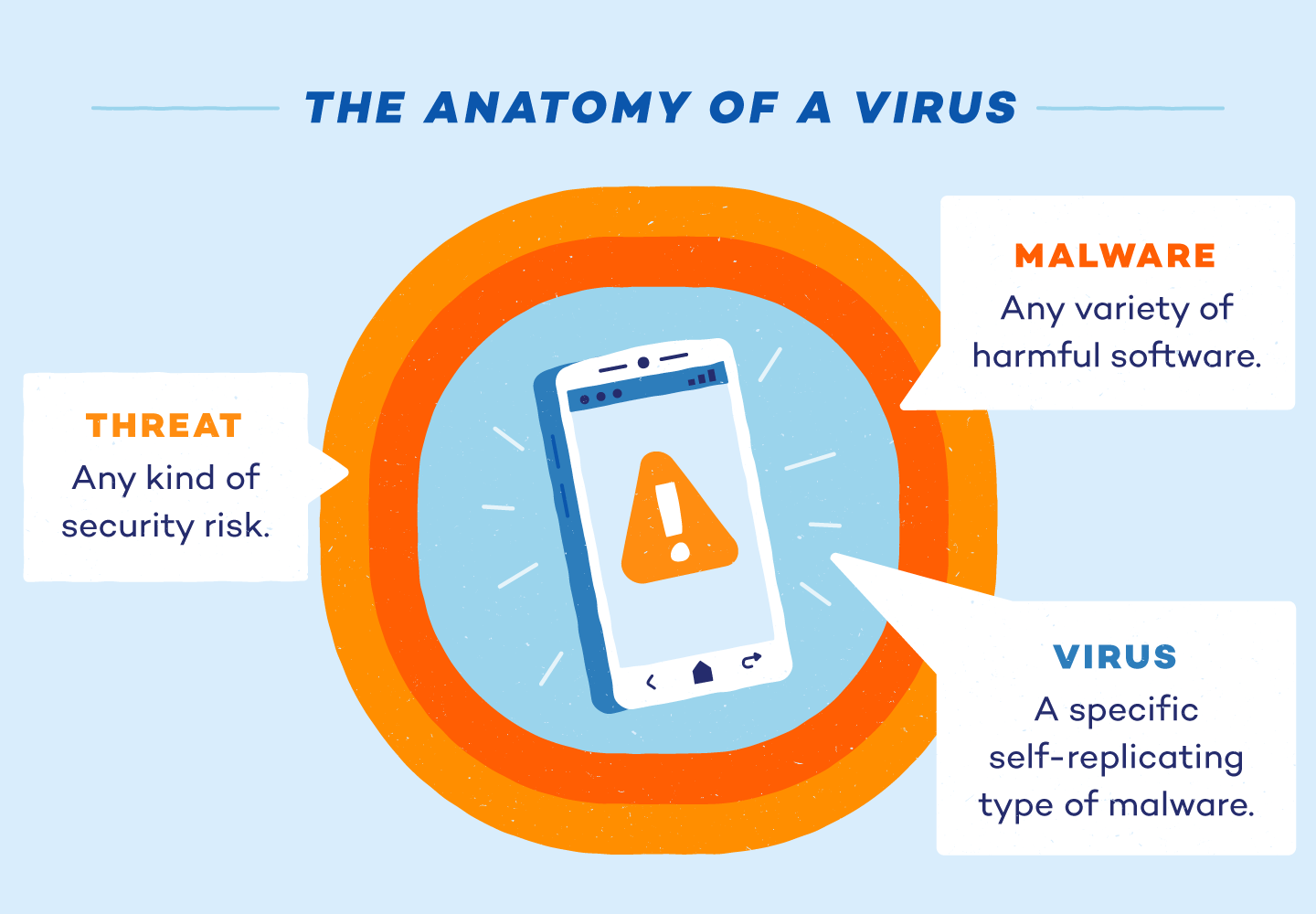
- Adware: While some pop-ups are an expected part of marketing promotions, an influx can exist a sign of adware. At all-time, it's an irritation. At its worst, it can rails activities and root your device to steal data.
- Ransomware: First appearing on desktop computers, ransomware encrypts personal information so the user can't admission it. A ransom is and then demanded for files to be released.
- Spyware: Spyware is often attached to seemingly legitimate applications. It then loads itself onto your device and tracks your activity, location, usernames, and passwords. Frequently, you won't notice this unsafe software is loaded on your phone.
- Trojan horse: A trojan equus caballus on your cell phone will typically announced as a text message. From there, they'll send messages at a premium, frequently increasing your telephone bill. Well-nigh recently, a banking trojan infiltrated Android devices and intercepted messages about personal fiscal information.
- Worm: Another virus spread by texts, a worm doesn't need user interaction to wreak havoc. It'southward main goal is to spread to as many devices as possible then hackers can load malware to your telephone and steal information.
How to Remove a Virus From an iPhone
While the operating organisation on an iPhone tends to be secure, viruses can still pervade built in security measures, especially on jailbroken phones. To remove a virus from an iPhone, begin by clearing your information history. If the problem persists, restore your telephone with an older backup. If you're notwithstanding seeing suspicious performance, reset the phone to factory settings. Doing so erases the existing information and subsequent virus.
- Stride 1: Clear your browsing data and history. Select settings, choose your main browser, tap clear history and website data.
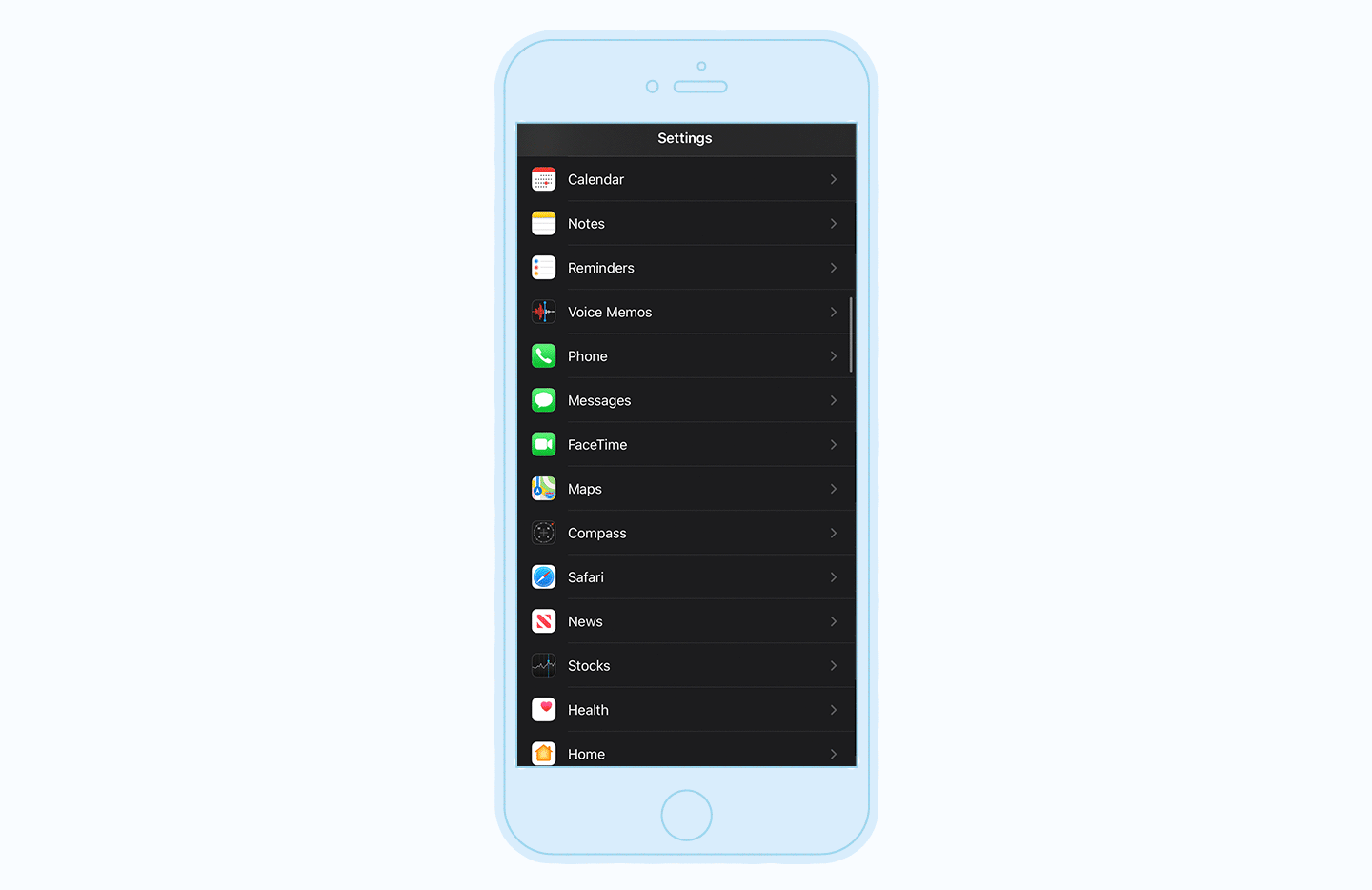
- Step 2: Restore your phone to a backup version. Select settings, then Apple ID, and choose iCloud. Select manage storage, then backups. Choose the well-nigh recent fill-in and restore the device.
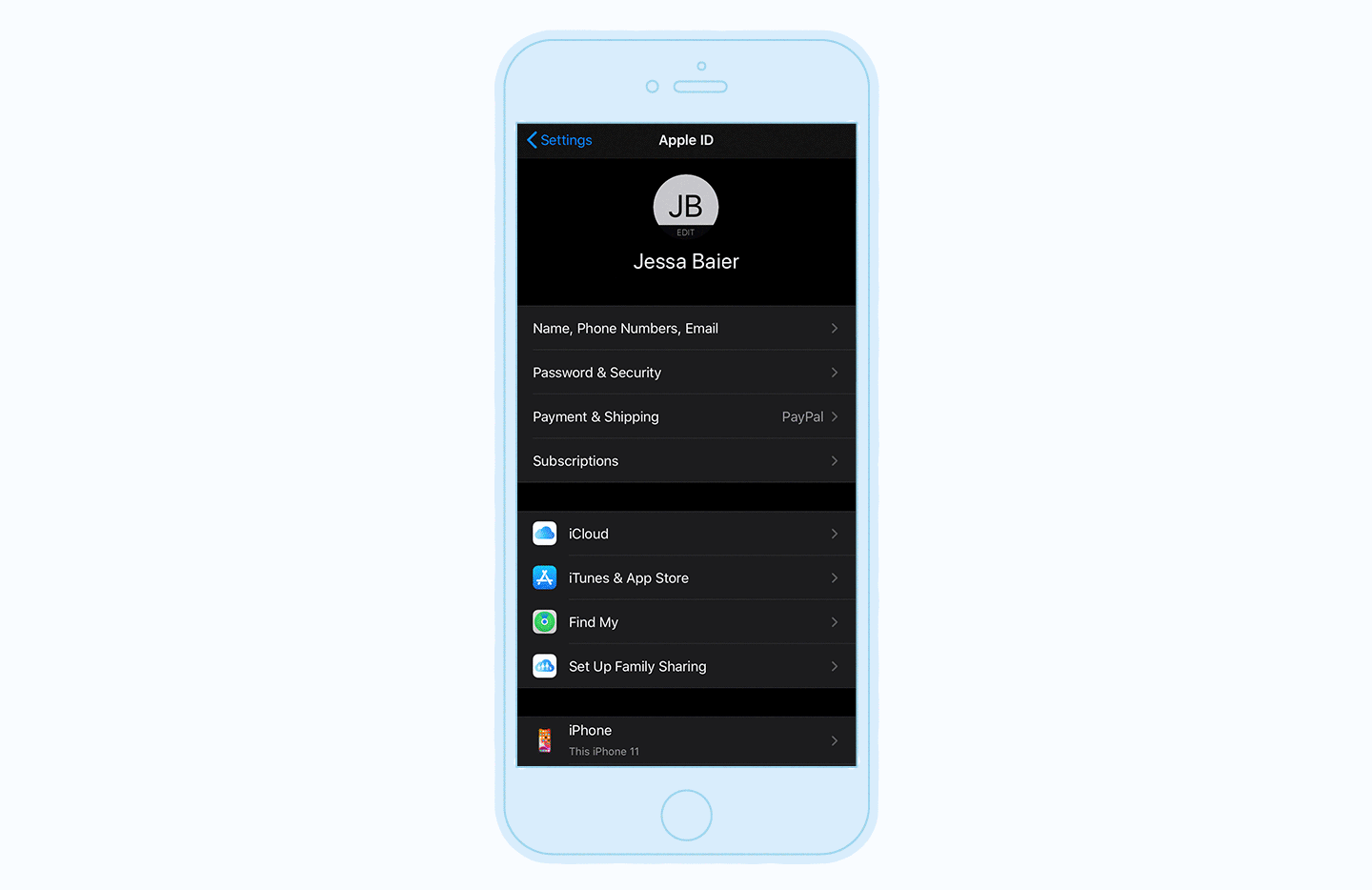
- Step iii: Reset to mill settings. This should be a terminal resort. Open your settings, and so cull general. From there yous'll find reset and select erase all content and settings. Your phone volition be reset to its manufacturing plant settings.
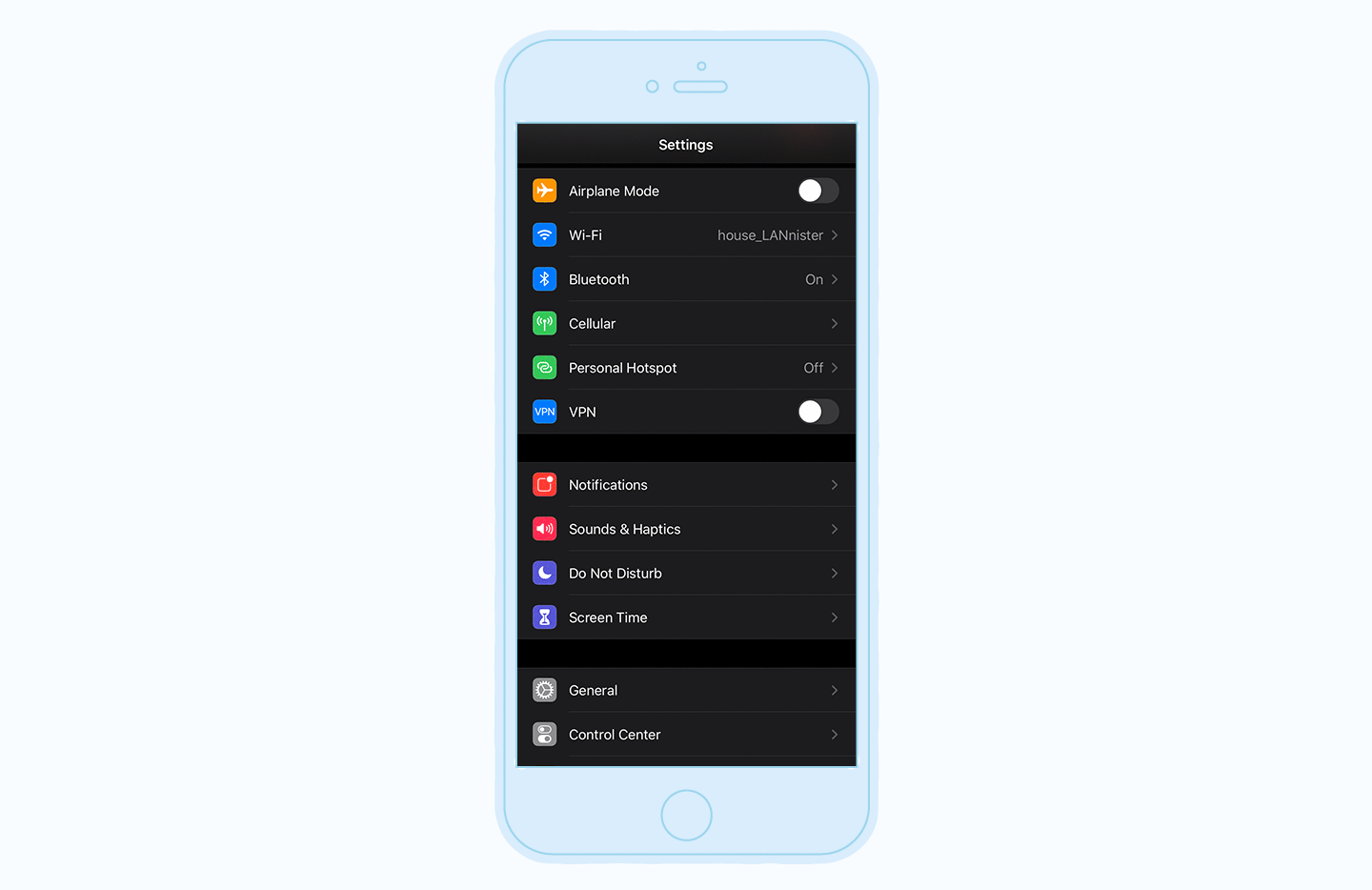
How to Remove a Virus From an Android Phone
Because of its open source code, Android devices are particularly vulnerable to malware attacks. Antivirus software is the near fail safe way to protect your Android from viruses. To remove a virus from an Android, starting time reboot the device in safe style.
Next open the settings and browse through recently installed apps to target any suspicious action. Uninstall whatsoever questionable software, and enable Google's Play Protect. Periodically scan your device for threats and manage them as needed.
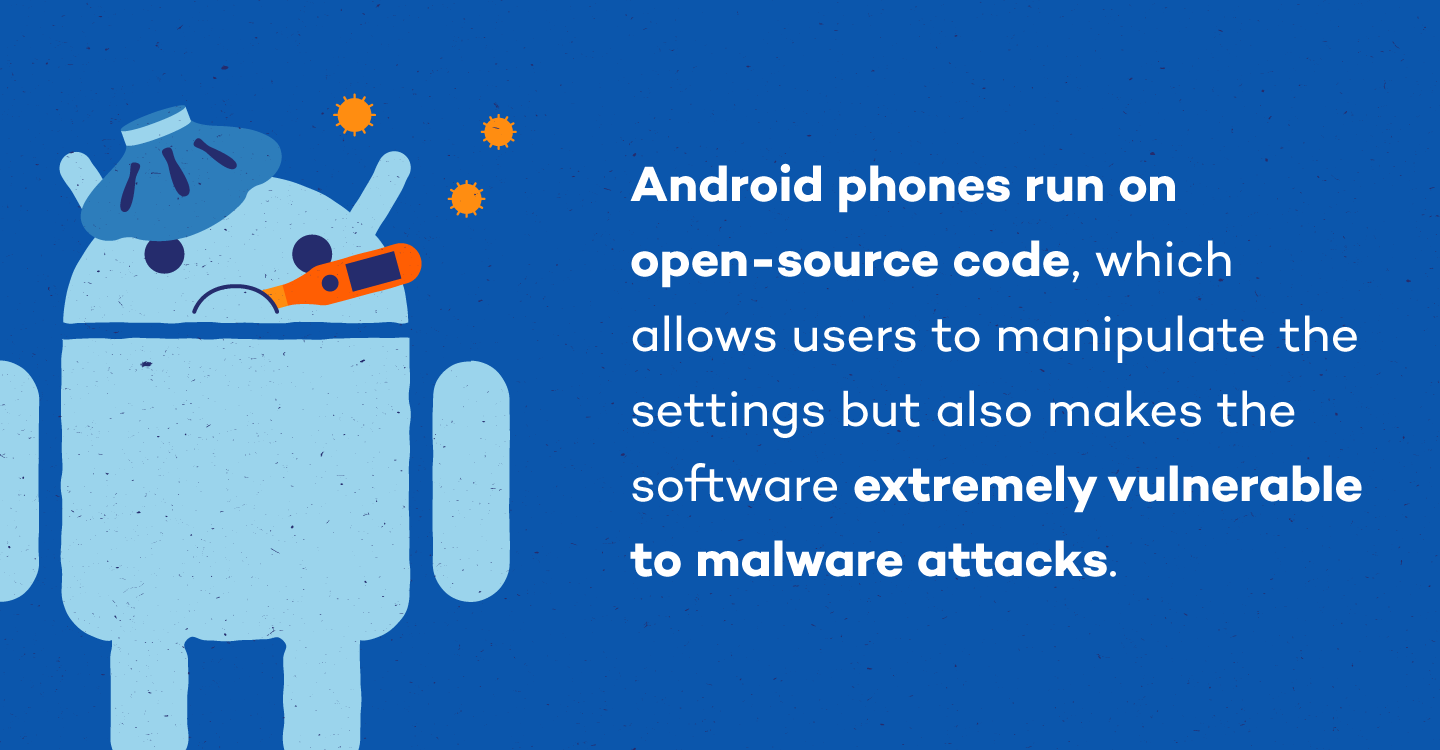
- Footstep 1: Articulate the enshroud. Select apps and notifications, next discover chrome. Go to its storage and select clear enshroud.
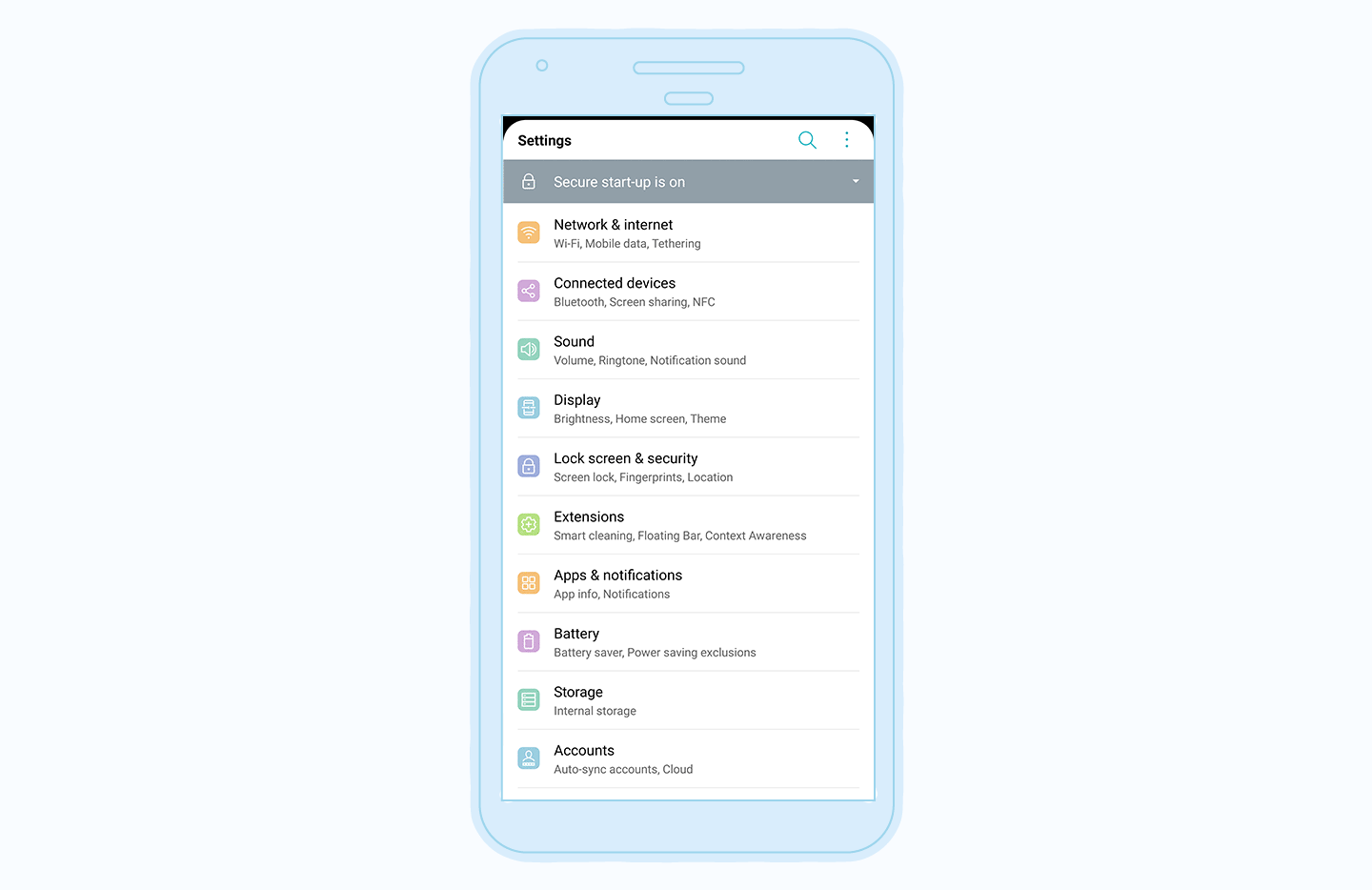
- Step 2: Kick the device in safe mode. Press and concord the power button. When the dialogue box appears, cull reboot to safe mode.

- Stride 3: Find the suspicious app. Open settings. Select apps. Manually review applications installed to notice any suspicious downloads. Once identified, open the app information and uninstall.
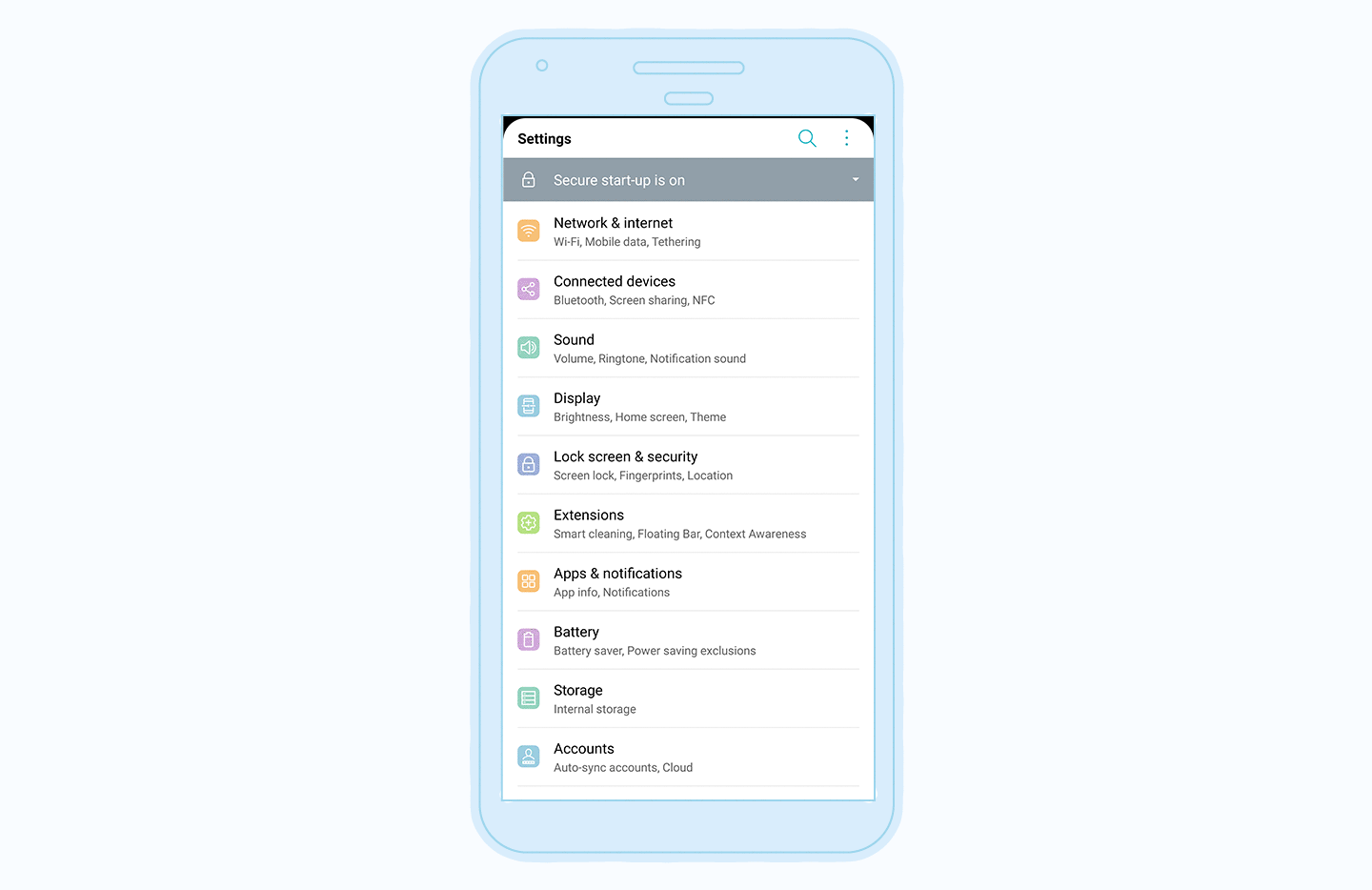
- Pace iv: Enable play protect. While antivirus is the about secure mode to protect your Android against malware, Play Protect is a built in software that can be useful as a secondary protection measure. To enable, cull the play store app. Open the menu in the upper left corner. Turn on the option to scan your device for security threats.

How to Protect Yourself From A Phone Virus
As a kickoff line of defense force, use antivirus software to protect your phone against malware. Exist cautious when installing new applications. Read the reviews and review the terms and weather condition for any verbiage that may bespeak admission to personal data. Regularly fill-in your phone then you lot tin can restore to a previous version if a virus does infiltrate your device.
- Only download verified apps: Avoid third party app stores. Doing and then minimizes the risk of installing unsafe apps posing as legitimate software.
- Use secure WiFi: Always apply protected WiFi or a VPN. This deters third political party hackers from interrupting the data flow to and from your phone.
- Check app permissions: Read the terms and conditions before downloading an unfamiliar app. Notice whatever verbiage that denotes the app may be able to employ personal information or change the terms without observe.
- Install antivirus software: Antivirus software is the best line of defence force against mobile malware. Run the software regularly and remove any threats detected.
- Update your Bone: Operating arrangement updates often patch bugs plant in its previous versions.
- Don't open suspicious letters: Malware can come in the form of email attachments, texts, and links. Don't click unfamiliar links or messages, as they may be a gateway to phishing sites.
- Don't jailbreak your telephone: Staying rooted allows necessary updates and patches to your operating system as iOS tightens its security. When you jailbreak your phone, you're vulnerable to holes found in previous versions plus dangers open-source lawmaking can pose.
Some viruses on prison cell phones are dormant until activated, with the goal of infiltrating as much user data as possible before being detected. An antivirus software can protect your mobile devices confronting cyberattacks. Stay vigilant when downloading new software to your devices, and understand the performance issues that may be associated with symptoms of mobile malware at work.
Sources: Threat Insight Report | IDG | Khalifa University | University of Cambridge | Hong Kong Academy
Source: https://www.pandasecurity.com/en/mediacenter/mobile-security/phone-has-virus/
0 Response to "How to Know if You Have a Virus on Your Android Phone"
Post a Comment